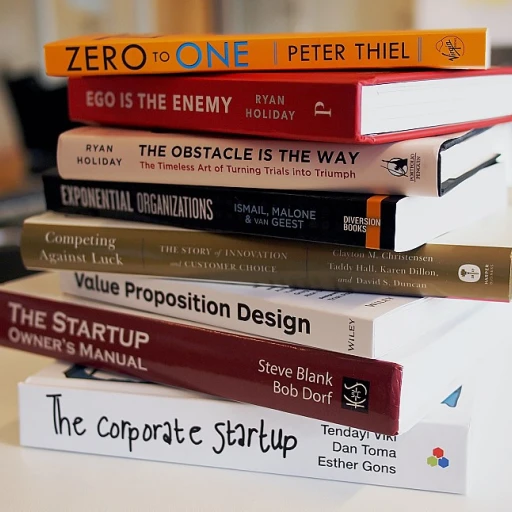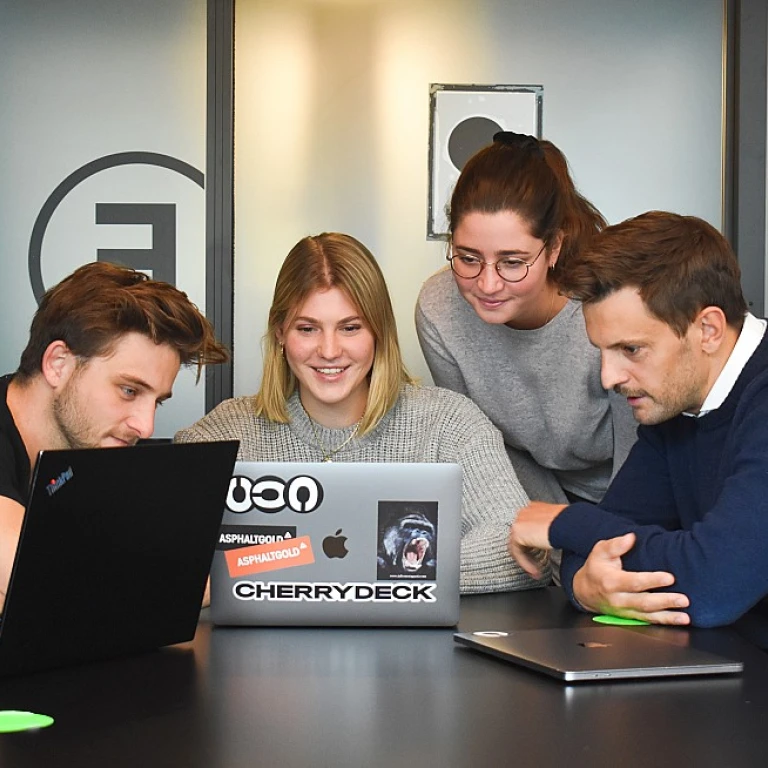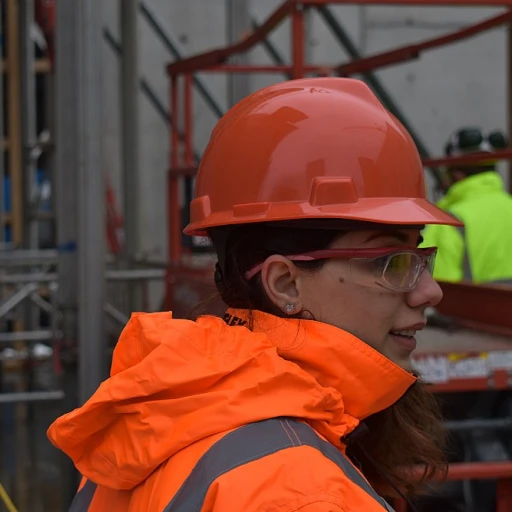
Defining Hiring Events
Understanding Hiring Events
In the ever-evolving landscape of talent acquisition, hiring events have emerged as a pivotal strategy for sourcing candidates. So, what exactly are hiring events? Essentially, they are organized gatherings, whether physical or virtual, where companies aim to engage with potential candidates in a streamlined manner. These events serve as a bridge between employers and job seekers, facilitating a more personal and interactive recruitment process.
Traditionally, hiring events could include job fairs or recruitment days, where job seekers can meet employers face-to-face. However, with the rise of technology and remote work, virtual hiring events have gained momentum. These online alternatives allow companies to reach a wider pool of talent without the constraints of location and time.
The recruitment process during such events is often fast-paced, with elements like on-the-spot interviews and presentations about the company's culture and open positions. They provide candidates with a real-time experience of the company, a glimpse into what working there might entail, and a chance to express their interest directly.
Moreover, hiring events are not just about filling vacancies; they are a strategic component of employer branding. By showcasing company culture and values, these events help attract talent that aligns with organizational goals, ensuring a better fit for both the employer and the job seekers. Engaging candidates during the event and following up post-event are critical to a successful outcome, paving the way for a seamless hiring process.
Benefits of Hosting Hiring Events
Advantages of Organizing Hiring Events
Organizing hiring events can be a highly strategic move for any recruitment team aiming to enhance their candidate sourcing process. Hosting hiring events offer numerous benefits that can give a competitive edge to a company's talent acquisition strategy. To begin with, hiring events provide an excellent opportunity to meet a large pool of candidates in person, which can significantly speed up the recruitment process. During these events, recruiters can conduct on-the-spot interviews, allowing them to assess potential candidates beyond their resumes and gain insights into their personality and communication skills. This efficient method of direct interaction can help identify the right talent quickly, saving both time and resources. Additionally, hosting hiring events showcases a company's culture and brand. Attendees get a firsthand experience of the company environment, which is an invaluable aspect of the decision-making process for job seekers. This exposure not only strengthens employer branding but also attracts candidates who align with the company values. Moreover, organizing recruitment events allows companies to stand out in a competitive job market. By creating a memorable experience, a company can differentiate itself from competitors vying for the same talented individuals. Virtual hiring events, for example, can broaden the reach to job seekers who might not be able to attend in person, thereby expanding the talent pool. Furthermore, a well-planned event strategy can foster a sense of community among attendees and encourages networking opportunities. Job seekers get to connect with not just the hiring team but also current employees and potential colleagues, enriching the candidate experience. Finally, insights gained from hosting hiring events can be crucial for future recruitment efforts. Feedback from participants can be used to improve the hiring process and tailor recruitment strategies to better meet the needs and expectations of candidates. By engaging closely with candidates during events, companies can gather actionable data that will help in refining their approach in talent acquisition, ultimately leading to more successful hires.Planning a Successful Hiring Event
Crafting a Comprehensive Event Strategy
When hosting hiring events, the first step to ensuring success is meticulous planning. This involves crafting a well-rounded event strategy that addresses both overarching goals and granular details of the recruitment event. To create a seamless experience, consider these important factors:- Define Objectives: Clearly establish what the company aims to achieve with the hiring event. Whether it's increasing brand visibility, filling specific open positions, or expanding talent acquisition channels, having a defined objective will guide the entire process.
- Select the Format: Decide whether a physical job fair or a virtual job event aligns better with the company culture and the target audience. Virtual hiring can broaden the scope of candidate outreach, while in-person events offer more personal interactions.
- Choose the Right Venue: If opting for a physical event, the location should be convenient for both the company and the job seekers. Ensure ample space for interviews and networking, alongside tools for presentations or workshops that enhance the candidate experience.
- Time Management: Schedule the event at a time that maximizes attendance. Consider peak hiring periods and industry cycles. A well-timed event will attract more candidates and elevate the success of the recruitment process.
- Marketing and Promotion: Utilize social media, company newsletters, and recruitment platforms to announce the event. Well-implemented promotional efforts will increase visibility and draw more attendees.
- Prepare Your Team: Ensure that the recruiting team, including hiring managers and talent acquisition specialists, are briefed and prepared to engage effectively with job seekers.
Engaging Candidates During the Event
Creating a Welcoming Atmosphere
To foster a successful and engaging environment during hiring events, it is crucial to create a welcoming atmosphere for all attendees. From a traditional job fair to a virtual hiring event, ensure that job seekers feel comfortable and valued. This starts with a friendly check-in process and clear directions to various activities planned for the day. In virtual events, providing an easy-to-navigate platform is equally essential to enhance candidate experience.Interactive Sessions and Demonstrations
Incorporating interactive sessions is an effective approach that keeps recruitment events lively and informative. Consider hosting workshops or panel discussions that highlight company culture and the range of open positions available. Utilize these opportunities to showcase what makes your company a desirable place to work and to highlight employer branding. In person hiring events might include live product demonstrations to give candidates a glimpse of the company's innovative spirit.One-on-One Engagement Opportunities
Providing one-on-one interaction opportunities is invaluable in any hiring event. This includes scheduling time for brief interviews or simply letting candidates engage with recruiters on a personal level. Creating an open channel for communication ensures that candidates can express their interests and ask questions. This approach enhances the recruitment process by enabling companies to evaluate potential talent in a more interactive manner.Utilizing Technology to Enhance Interaction
In virtual hiring sessions, technology plays a critical role in facilitating seamless interactions. Using social media platforms and other virtual collaboration tools, candidates can easily connect and communicate with recruiters and hiring managers. Offering virtual tours of the office or live Q&A sessions can help candidates better understand the work environment and company dynamics.Wrapping Up with Clear Next Steps
Conclude the event by clearly communicating the next steps of the hiring process. Make sure that candidates are aware of timelines for feedback or potential interviews. Providing a roadmap ensures that applicants leave the event with a clear understanding of what to expect and helps maintain their interest in the company. This is essential for talent acquisition and fostering a positive candidate experience.Post-Event Follow-Up
Strengthening Connections with Attendees
The period following a hiring event is a crucial time to solidify connections made with potential candidates. It is essential for companies to actively engage with the attendees to leave a lasting impression. Here are some effective strategies:- Timely Communication: A prompt follow-up message shows that your company values the candidate’s time and interest. Whether it’s through an email, social media message, or even a phone call, ensure that the communication is timely and personalized.
- Feedback and Updates: Provide candidates with feedback from any interviews or interactions they participated in during the event. Keeping the lines of communication open regarding next steps in the hiring process can enhance the candidate experience.
- Highlighting Company Culture: Use this opportunity to showcase more about your company culture. Share stories from current employees, highlight ongoing projects, or discuss the company’s mission and values as a way to further engage candidates.
- Connecting on Social Media: Engaging with potential hires on platforms like LinkedIn can maintain momentum from the initial contact and strengthen company branding.
Nurturing Talent Pools
Building a robust talent pool is vital for effective recruitment. The follow-up phase is the perfect chance to add interested candidates to your company database for future consideration:- Record Keeping: Keep detailed records of the candidates, including their skills, experience, and any specific positions they showed interest in. This information can be invaluable for future hiring events or when filling open positions.
- Regular Engagement: Maintain ongoing communication with your talent pool through newsletters or event invitations, ensuring potential candidates are aware of future opportunities.
Analyzing Event Outcomes
Understanding the effectiveness of your hiring event is key for continuous improvement.- Soliciting Feedback: Reach out to attendees and gather feedback regarding their experience at the event. Did the virtual format meet their expectations? Was the information provided about open positions and the recruiting process clear?
- Evaluating Metrics: Track the number of applications received, candidates moved to interview stages, and ultimately, the hires made from the event. These metrics can provide insights into the event’s impact on your recruitment process.
Measuring the Impact of Hiring Events
Evaluating the Success of Hiring Events
In the competitive landscape of talent acquisition, understanding the impact of your hiring events is paramount. It's crucial not only to gather data but also to analyze it effectively in order to assess how well the events align with your recruitment goals. Here are key areas to focus on:- Candidate Conversion Rates: The fundamental measure of success in any recruitment event is the conversion of attendees into viable candidates. Analyze the percentage of participants who advanced through the hiring process and eventually filled open positions at your company.
- Candidate Experience Feedback: Solicit feedback from candidates who participated in the events, whether they were virtual hiring sessions or in-person job fairs. Understanding their experience helps refine future engagement strategies and improve employer branding.
- Attendee Engagement Levels: Whether through interviews, workshops, or panel discussions, assessing the engagement of attendees during the event provides insight into what aspects resonated with job seekers. Use metrics like participation rates and social media interaction to gauge interest levels.
- Cost-Benefit Analysis: Hosting hiring events requires resources, and it's essential to evaluate the return on investment. Compare the costs involved against the recruitment outcomes to determine the financial feasibility of your event strategy.
- Quality of Hires: Measure the long-term impact of your hiring events by tracking the performance and retention of new hires sourced through these channels. This offers insight into the effectiveness of the event in attracting high-caliber talent.
- Company Culture Fit: Analyze how well the new hires align with your company culture. Successful recruiting at hiring events often hinges on effectively communicating your company culture and values during the process.













